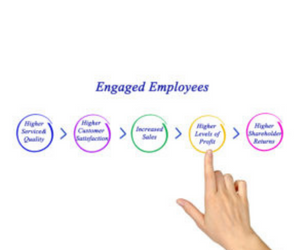A System for Finding Family Business Blind Spots
The Rosy Periwinkle
The rosy periwinkle doesn’t look like a plant that’s worth $200 million a year. Except that its flowers are pink, it resembles the blue periwinkle commonly used as ground cover.
To the desperate parents of childhood leukemia victims, however, the rosy periwinkle is worth all the money in the world. Chemicals found only in these plants have a unique ability to keep certain kinds of cancerous cells from reproducing. These chemicals have helped increase the survival rate for childhood leukemia from 10% to 95%.
The economic value of these medicines is close to $200 million a year. Who can imagine the joy and relief they’ve provided to young patients and their parents?
Impressive as the rosy periwinkle is medically and economically, its importance doesn’t end there. Conservationists also prize the rosy periwinkle because it’s an excellent example of why biodiversity is important.
The rosy periwinkle is native to the island of Madagascar. This island off the coast of Africa has a rapidly expanding population, and many of the native plants and animals have vanished as cities and towns overtake their habitat. The rosy periwinkle escaped extinction, but what if it had been lost before we ever knew about its extraordinary medicinal properties?
Scientists know that countless other useful compounds await discovery.
Michael Novacek, vice president of the American Museum of Natural History (AMNH), believes that no matter how insignificant a species may appear, it could have great value..
As it is, more than a quarter of all the prescriptions from pharmacies come from chemicals originally discovered in plants. Another 13% come from microorganisms, and 3% come from animals. Yet these materials are only a minuscule fraction of the ones that are almost certainly available. We just haven’t studied them yet.
In most cases, we haven’t studied them yet because we don’t even know they’re there. As Novacek puts it, we suffer from “unacceptable ignorance.” Up to now, he says, we’ve named 1.6 million species, but this is far, far short of the total. Scientists estimate that there are between 10 million and 100 million species on earth today, and we don’t even know for sure which figure is more likely.
How can we be so unsure about the number of species? The answer is that in the rain forests, life exists in a profusion and complexity that’s hard to imagine. In the Amazon, for example, one scientist found 43 different species of ants on a single tree. To put that figure in perspective, that’s more than the number of ant species in all of England.
The Destruction of Habitat and Its Impact
What worries conservationists is that destruction of habitat is causing thousands of species to go extinct each year. Says Novacek, “The loss of tropical rain forest is proceeding at an extraordinary rate. We’re losing rain forest equivalent in area to the state of Florida each year.”
In 1993, Novacek and his colleagues at the AMNH established the Center for Biodiversity and Conservation. “It’s purpose,” says the Center’s Director, Dr. Francesca Grifo, “is to focus the museum’s broad scientific and educational expertise on biodiversity conservation.” The Center also trains future scientists from around the world so there will be more specialists available to undertake this work.
Because of the work of these dedicated people, future generations may benefit from many other organisms just as wonderful as the rosy periwinkle.
Search Articles
Latest Articles
Ukraine’s Fate and the U.S. Election: A Perspective from the Front Lines
https://foreignpress.org/journalism-resources/ukraines-fate-and-the-us-election-a-perspective-from-the-front-lines Publication –foreignpress.org
New Life for Old Ambulances
https://foreignpress.org/journalism-resources/new-life-for-old-ambulances Publication –foreignpress.org
Prince Mario-Max Schaumburg-Lippe: Orphans International and James Jay Dudley Luce Foundation Celebrate 25 Years of Global Leadership
https://t2conline.com/prince-mario-max-schaumburg-lippe-orphans-international-and-james-jay-dudley-luce-foundation-celebrate-25-years-of-global-leadership Publication –t2conline.com
Mitzi Perdue: I Am An Assassination Attempt Survivor
Mitzi Perdue: I Am An Assassination Attempt Survivor About The PodcastThe newsmaker interviews and the news you need when time is short!
Subscribe to Updates
About Author

Mitzi Perdue is the widow of the poultry magnate, Frank Perdue. She’s the author of How To Make Your Family Business Last and 52 Tips to Combat Human Trafficking. Contact her at www.MitziPerdue.com
All Articles
Be the Person Others Want to Do Business With: Be fair
Be the Person Others Want to Do Business With: Be fairThe Beginnings of the Sheraton Hotel The international Sheraton Hotel Chain grew from an investment of just $1000. My father, his brother, and his college roommate received war bonuses after their military service...
Heart Disease In Women: It’s Different
Heart Disease In Women: It’s DifferentHEART DISEASE IS A WOMAN’S DISEASE In the 1950s, we all thought heart disease was a man’s disease. However, more women are dying of heart disease than men. Also, even though the mortality rates for both men and women are...
Prevent Nightmare House of Horrors: Family Business Quarrel, Part 2
Prevent Nightmare House of Horrors: Family Business Quarrel, Part 2 To prevent a Family Business Quarrel 1. Create a culture emphasizing that family members are part of something bigger than themselves. Being too self-centered is a danger in a family business....
Preventing Nightmare House of Horrors, a Family Quarrel, Part 1
Preventing Nightmare House of Horrors, a Family Quarrel, Part 1Since you’re here reading this, the subject probably hits close to home. If so, you have my entire sympathy. If ever there’s a high stakes situation, it’s the family quarrel in a family business. I’ve had...
Four Things Frank Perdue Did to Encourage Employee Engagement
Four Things Frank Perdue Did to Encourage Employee Engagement Employee engagement is one of the most important – possibly the most important factor in an organization’s success. When I look at how Frank Perdue (my late husband) built his chicken company from a...
Employee Engagement – Gallup Really Knows!
Employee Engagement - Gallup Really Knows!Visit Gallup, the People Who Really Know There are 1.3 billion full-time employees in the world. Give a guess: how many feel enthusiastic about and committed to their work? 1) 13% 2) 30% 3) 82% 4) How the heck could anybody...




